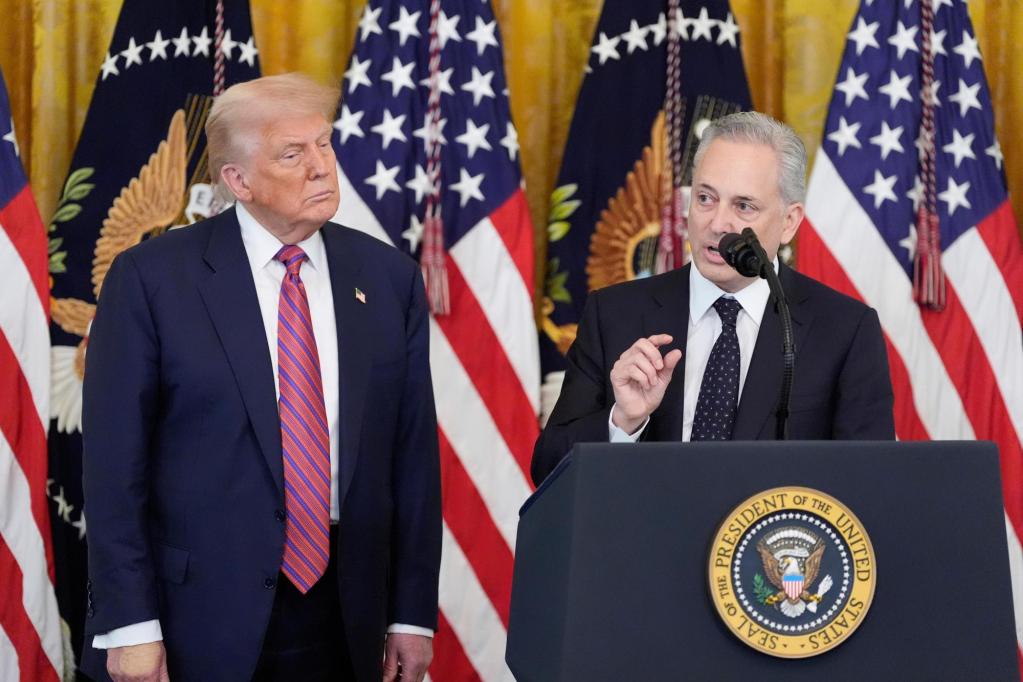U.S. Senator Mark Warner of Virginia is under scrutiny as Congress considers new legislation that may further entrench the cryptocurrency market, a sector criticized for facilitating illicit activities and posing risks to consumers. This month, the Senate could vote on the Responsible Financial Innovation Act, a measure that some analysts describe as enabling fraudulent practices within the financial landscape.
Once a vocal critic of cryptocurrencies, former President Donald Trump has shifted his stance. He previously referred to Bitcoin as a “scam” and “based on thin air,” yet now seeks to position himself as an advocate for digital currencies, leveraging significant financial backing from crypto supporters. This transformation is indicative of a broader trend in which major political contributions from the cryptocurrency industry have influenced legislative agendas in Washington.
Financial Influence and Legislative Pressure
According to reports from Public Citizen, the cryptocurrency sector has spent over $119 million on political campaigns for the 2024 elections, making it one of the most significant contributors in U.S. history. The funds have been used strategically to defeat critics, such as Senator Sherrod Brown of Ohio, who has been vocal about the dangers of cryptocurrencies.
In a notable example, the crypto industry invested $10 million to undermine the California Senate bid of then-Representative Katie Porter, who has raised concerns about the environmental impacts of crypto mining. Research from Georgetown University highlighted that crypto mining consumes more energy than the entire nation of Argentina, raising alarms over its sustainability.
Stablecoins, a category of cryptocurrency that maintains a fixed value against a fiat currency, have become particularly popular for illicit transactions. In 2024, the value of illicit transactions using stablecoins surpassed $51 billion, an increase from $46 billion the previous year. These figures underscore the potential risks associated with unregulated digital currencies.
The Implications of New Legislation
The upcoming vote on the Responsible Financial Innovation Act is significant not only for its immediate impact on the crypto market but also for its longer-term implications for financial regulations. The total market capitalization of Bitcoin and other cryptocurrencies exceeds $3 trillion, raising concerns about the lack of consumer protections in this rapidly evolving sector.
Critics argue that the Act could further entrench problematic practices, with some labeling it the “Ponzi Finance Enablement Act.” The legislation is seen as a way to sidestep crucial regulatory frameworks that are intended to protect consumers and investors from potential scams and financial instability.
Political analysts have noted that while many Americans hold negative views of cryptocurrencies, the influence of crypto funding in political campaigns may sway some lawmakers to vote in favor of these new regulations. As the crypto lobby continues to grow, the potential for adverse effects on both consumers and the economy raises important ethical questions about the intersection of politics and finance.
As Senator Warner prepares to cast his vote, the stakes are high. Critics hope he will resist the pressure from crypto advocates and prioritize meaningful consumer protections. They emphasize the need for transparency and accountability in an industry that has shown vulnerabilities to fraud and exploitation.
In an ideal scenario, Warner would oppose the Responsible Financial Innovation Act, demand stricter regulations, and call for the expulsion of any political figures, including Trump, from involvement in crypto ventures where conflicts of interest arise. As the debate intensifies, the outcome of this vote could redefine the landscape of cryptocurrency regulation in the United States.
